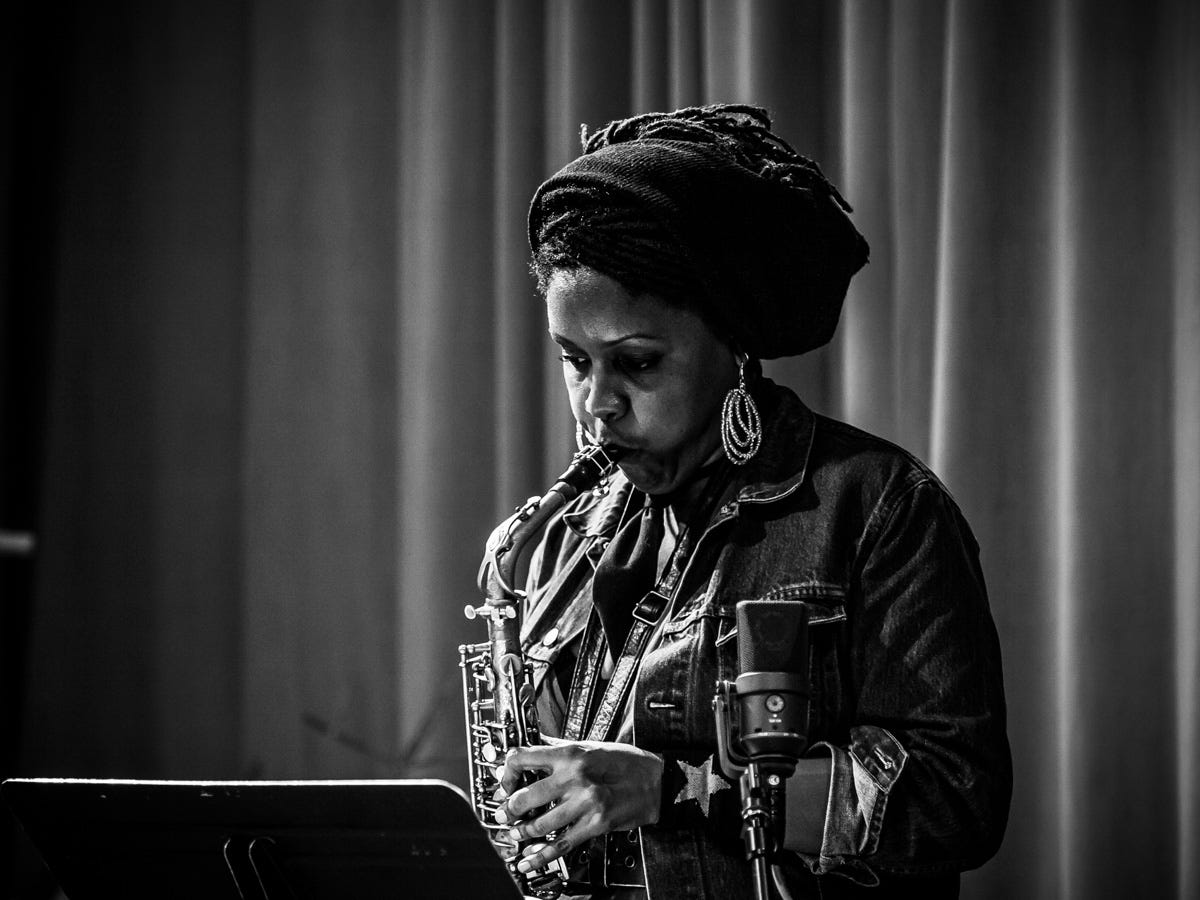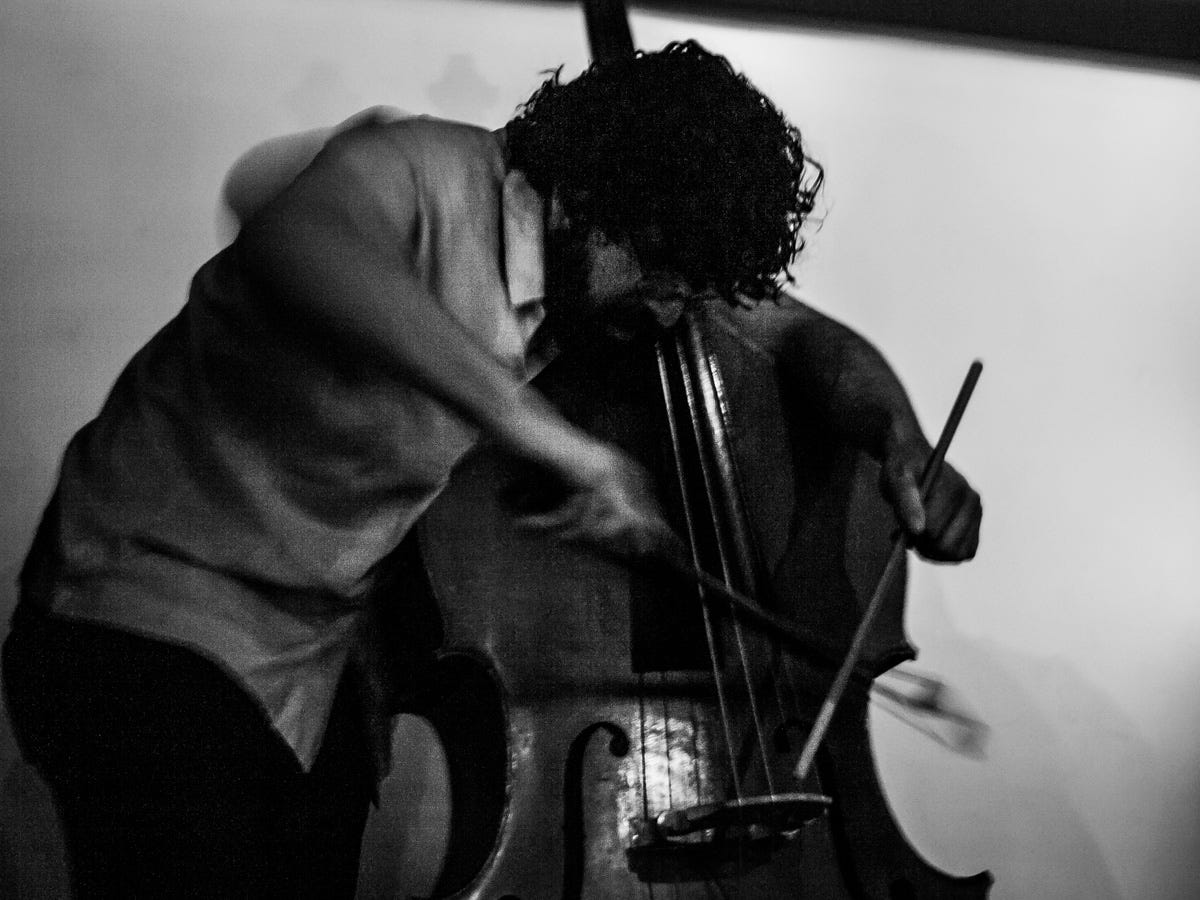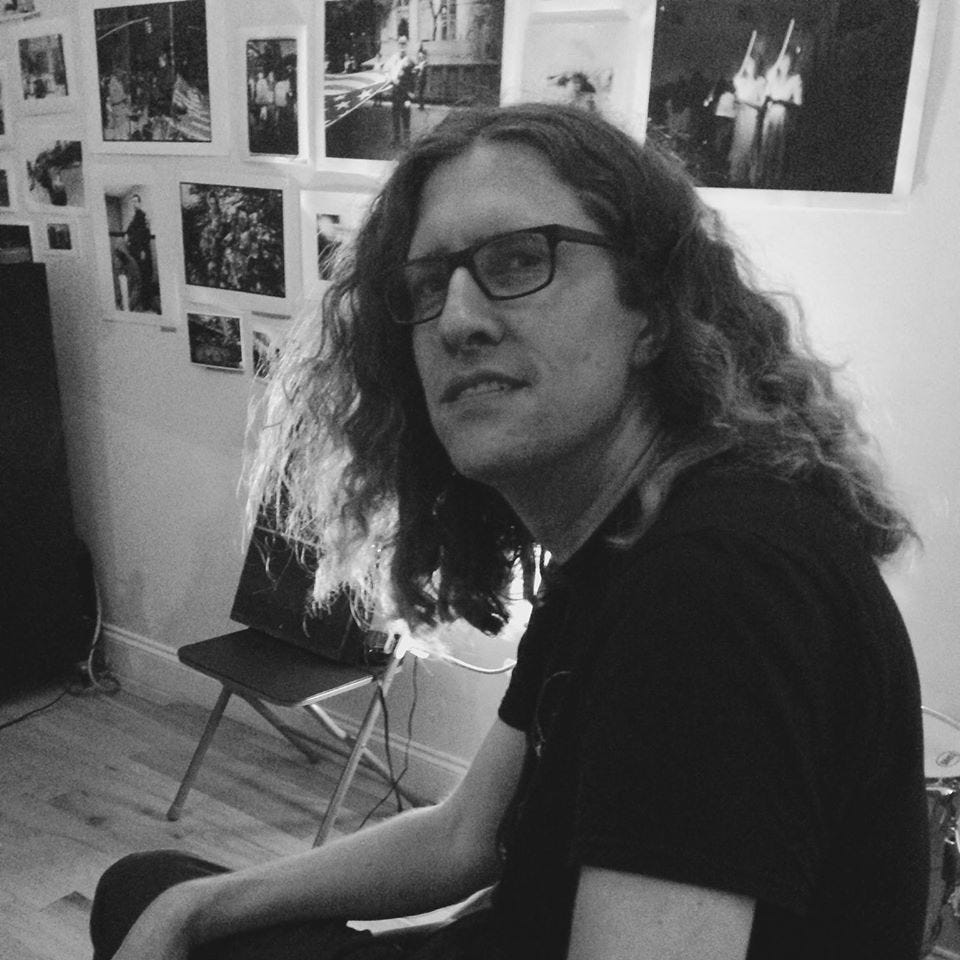Bklyn Sounds: 3/14/2023 - 3/20/2023 + Cisco Bradley’s ‘The Williamsburg Avant-Garde’
A book about "experimental" music in Brooklyn 1987-2014 + Shows: Laraaji / NuJazz + Aquiles Navarro + DJ Haram / Angel Bat Dawid x Nas x "Take Two" / Yazmin Lacey / Coloring Lessons anniversary / more
Winston Churchill, the heartless yet mindful intellectual giant of “democratic” colonialism and global markets, once famously said, “History is written by the winners.” And in post-Y2K Brooklyn culture, monuments to capital — whether Meet Me in the Bathroom, the Domino sugar factory, Avant Gardener or…hell, the eventual compensation packages for Vice founders — are assertions of this proverb. Evidence of what’s been codified as inevitabilities, stories we already kinda know (details some may even remember first-hand) now repeated ad nauseum, cementing into approved narrative. They’re also tides that Cisco Bradley’s new book, ‘The Williamsburg Avant-Garde: Experimental Music and Sound on the Brooklyn Waterfront,’ swims against; and while only time can measure the tome’s success in augmenting the permanent record, it already proves that the rout did not occur in a neoliberal hipster vacuum, that the contextual details of sights and sounds, places and ideas which abetted what’s oft-regarded as the borough’s renaissance were far more interesting than the stylistic rehashes that helped fuel the real-estate land-grab. All without forgetting that plunder as turn-of-the-century’s and Bloomberg era’s primary legacy.

Part of the reason why ‘The Williamsburg Avant-Garde’ works is that Cisco, a history professor at Pratt, music critic and author of an excellent biography of bassist William Parker, isn’t simply a documentarian of the culture, but an active participant. (He founded the site Jazz Right Now and produced a few DIY music events.) Possessing critical and community skin in the game gives Cisco access to a lot of original (and a few unique) sources, plus an understanding of the broader purview and energies that were at play in this period. The core of his story is centered on the free jazz community’s relocation from Downtown Manhattan, its establishment in North Brooklyn, and the ensuing aesthetic developments that came from a new generation of improvisors arriving to this part of the city, sensing a unique place and space being born. Other interesting plots also disrupt the popular Williamsburg music storyline: the mingling of old and new ways, the influx of global and punk/noise-oriented sounds, an expansion of canon and accepted strategies within improvisation circles. (Downtown tropes now pushed even further outward, artistically and geographically.) I would argue that the the novelty of this mix — musical, for sure, but also cultural, of identities and even socio-economic status (especially early on) — was a primary beauty of “peak Williamsburg.” On some level, Cisco doesn’t drive this lane hard enough — though, in his defense, that isn’t the book’s principal point of attack.
In many ways, Dada Strain is itself an attempt to continue documenting the contemporary elements which Bradley’s book spotlights — but also of those he chooses to shy away from, especially ones that deal with dancing and mechanized rhythm. I spent most of this book’s era in proximity to its spaces and sounds, doing drive-bys and stopping just long enough to engage with this community’s prodigious, often remarkable output, while consciously remaining strictly on the outskirts, due to its catholic stances on, say, Grateful Dead or house/hip-hop at a time when such affinities would invite group lectures at some loft where you didn’t really know anybody. (Some of it was inevitably my own priggish stance, though rest assured much of it was theirs. LOL!) But forget what are, in retrospect, petty aesthetic differences. What’s unassailable is that the interlocking communities Cisco’s book introduces to the archive, are responsible for many of the best remaining (and in some cases proliferating) aspects of Brooklyn’s independent music culture today. In some cases, they’re direct offspring of what happened then, with even the same people involved; in others, it’s amplifications of culture that ‘The Williamsburg Avant-Garde’ may have once ignored. What’s equally without a doubt is that many members of this community have survived, remained locals, and continue to work with their creative ethics intact. That alone makes them winners in a way that Churchill never considered the conquered to be.

There’s a book launch for Cisco Bradley's ‘The Williamsburg Avant-Garde’ at Shift 411, right next door to where the old Right Bank Cafe used to be. There will be a Q&A with Cisco conducted by John Morrison. Followed by performances featuring musicians who appear in the book: vocalist Andrea Wolper, pianist Virg Dzurinko, Talibam! (the duo of keyboardist Matt Motel and drummer Kevin Shea) with the poet Yuko Otomo, saxophonist Tamio Shiraishi, and drummer Marc Edwards' Slipstream Time Travel.
(Cisco Bradley's ‘The Williamsburg Avant-Garde’ book release, Thurs 3/16, 7p @ Shift 411 Kent Ave. Williamsburg - FREE)
THIS WEEK’s OTHER SHOWS:
Keep reading with a 7-day free trial
Subscribe to Dada Strain to keep reading this post and get 7 days of free access to the full post archives.


